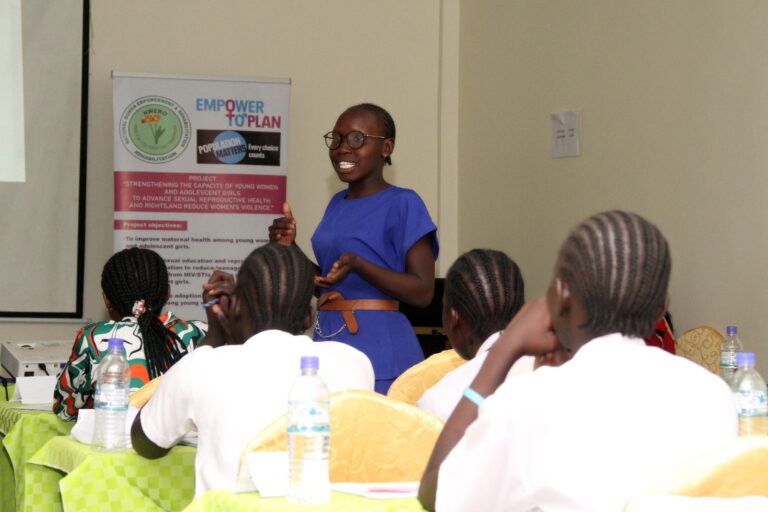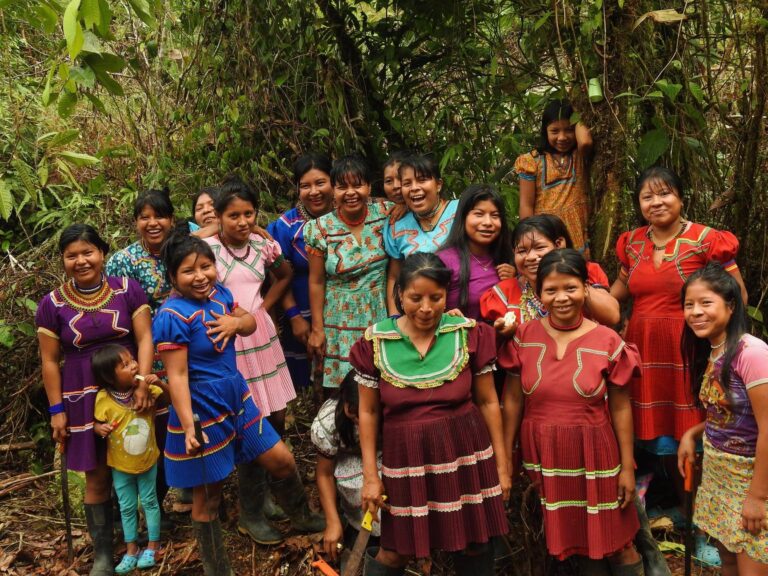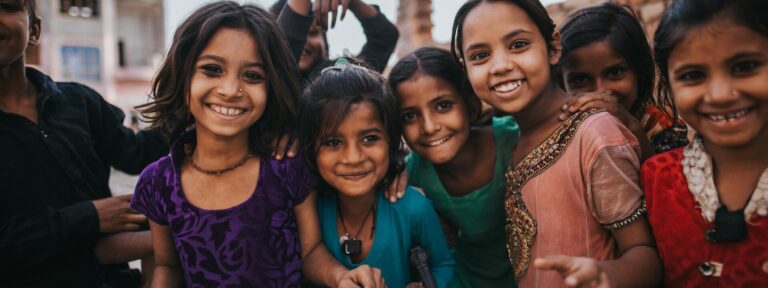
Women leading Sustainable Development in the Philippines
Please help the women of Sapao, in the Philippines, build sustainable livelihoods and secure their rights while nurturing the environment. These resilient women bear the brunt of climate change and lack access to essential sexual and reproductive health and rights (SRHR).
In Sapao, livelihoods depend on fishing. However, climate shocks and unsustainable fishing practices are causing fish stocks to dwindle, which directly affects lives, health, and nutrition. The area also has a high rate of early pregnancies and a lack of access to SRHR services.
In response to the challenges, PATH Foundation Philippines, Inc. (PFPI) establishes women-managed areas (WMAs) – a collective of women, to lead conservation and women’s rights efforts. This makes them a perfect Empower to Plan partner.
How can you help?
Your funding supports the formation of a WMA in Sapao. It enables PFPI to work with the WMA and the local government to establish a mangrove nursery and develop reforestation and management plans.
Building on this foundation and with your support, the capacities of over 100 women are being enhanced in various critical areas: SRHR, ecosystem-based fisheries management, and the intricate processes of mangrove nursery establishment, replanting, and ongoing management.
Beyond training, 20 women are also being provided with conservation-based livelihood opportunities, enabling them to earn a living, while playing an active role in conservation.
In addition, PFPI empowers the women involved to advocate for gender rights and environmental policies, ensuring that your funding benefits more people and communities beyond the life of this project.
Here’s how PFPI is making a difference: A Holistic Population, Health, and Environment (PHE) Approach
PFPI are pioneers of the PHE approach, which combines environmental conservation, healthcare, and sustainable development goals. This six-month project seamlessly integrates these elements to address Sapao’s interconnected challenges.
As part of this approach, PFPI organises women into a WMA and places them at the forefront of conservation efforts. This fosters a sense of unity and empowerment. As a cohesive group, they inspire and support each other, driving positive change in their livelihoods and encouraging health-seeking behaviour within their community.
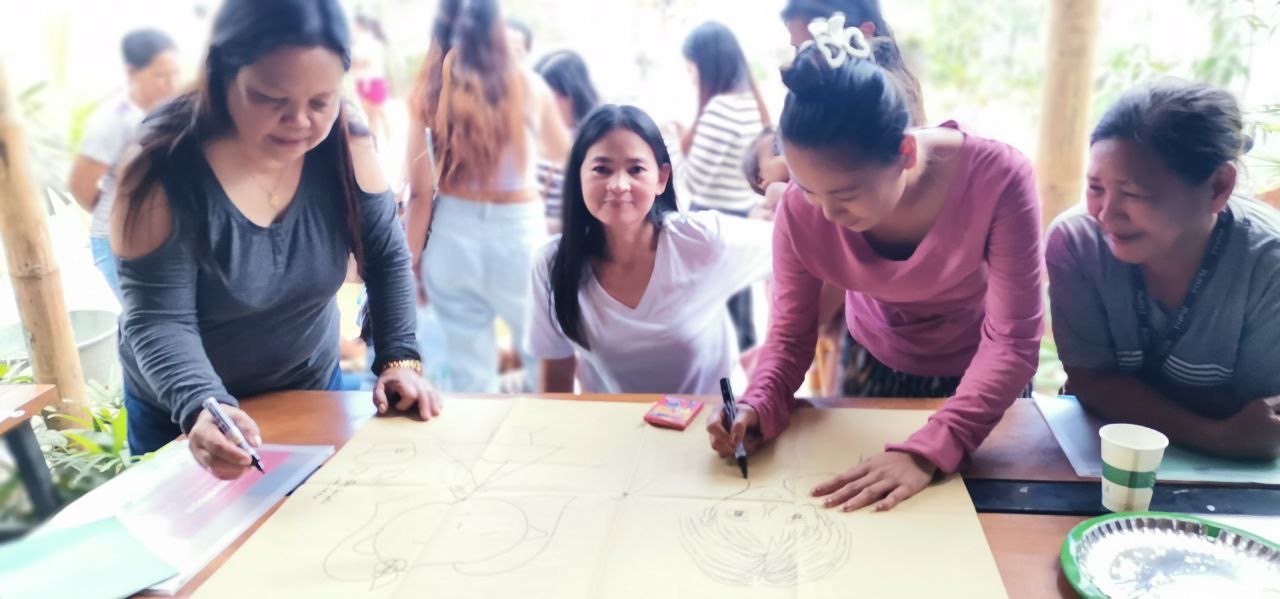
Education sessions, provided by PFPI in close collaboration with local government units, equip women and the community with essential knowledge on SRHR and marine conservation. This empowers them to address ecosystem issues, combat climate change impacts, and improve health outcomes.
Conservation-based livelihood opportunities for women enhance community resilience against climate shocks, paving the way for a sustainable future.
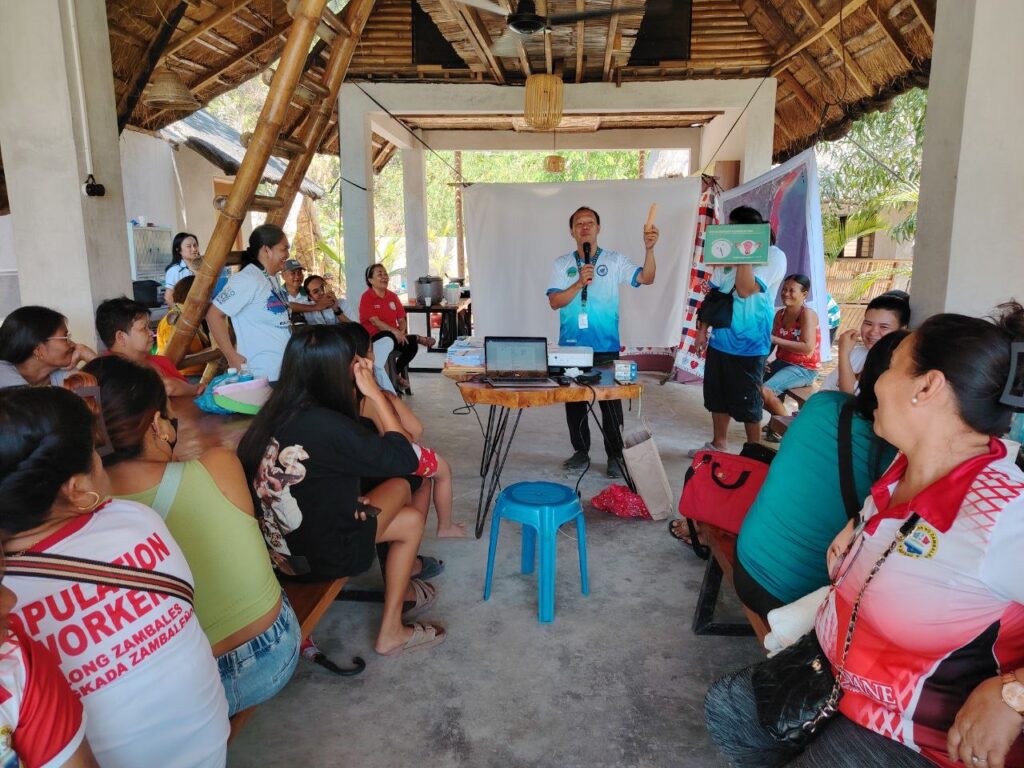
PFPI supports the WMA in advocating for SRHR and environmental policies, ensuring the sustainability of the project and advancing PHE efforts. This helps everyone involved see how human health, population dynamics, and the environment are connected. By working on these together, PHE efforts tackle root causes, ensure sustainability, and empower communities to take charge of their development.
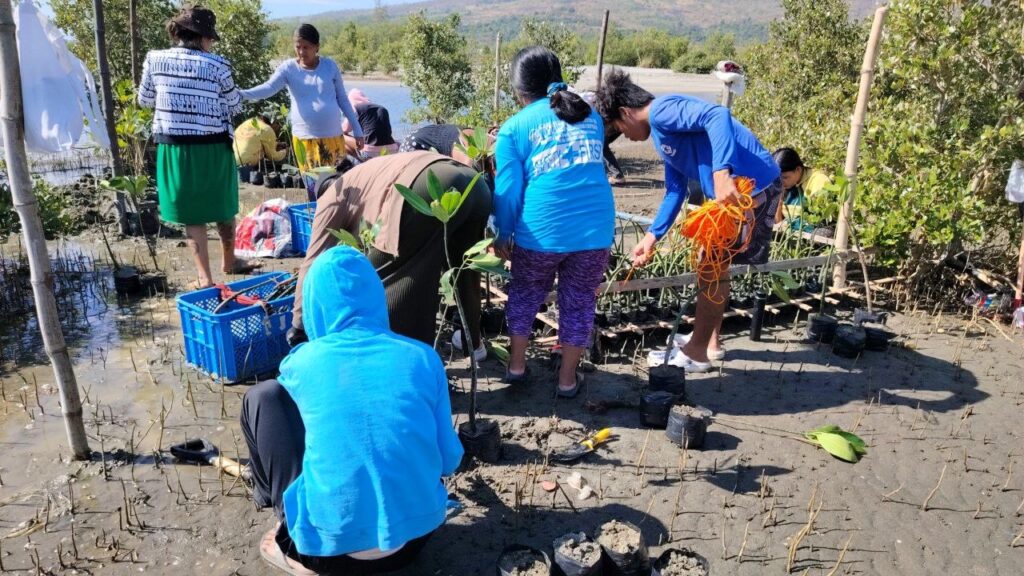
The WMA’s mangrove initiatives protect the coast, improve water quality, and restore marine habitats. These mangroves host diverse species, serving as breeding, feeding, and nursery grounds for many marine organisms.
Your support will rejuvenate marine habitats, improve livelihoods, and contribute to the health of the community and the environment.
Sustainable Development Challenges in the Philippines
The Philippines, an archipelago of more than 7,100 islands, faces significant population and environmental pressures. Ranked as the 13th most populous country globally, it has one of the highest population density rates in coastal Asia (337 people per square kilometre).
In rural Philippines, where more than half of the population resides, livelihoods revolve around agriculture, forestry, and fisheries. However, poverty remains a pressing issue. Rapid urbanisation and population growth strain natural resources, leading to environmental degradation and ecosystem instability. This, in turn, worsens poverty levels in these areas. The infographic below illustrates the significant challenges confronting the Philippines, particularly in sexual and reproductive health and rights (SRHR), livelihoods, and the repercussions of climate change on rural communities. These challenges underscore the urgent need for holistic solutions.
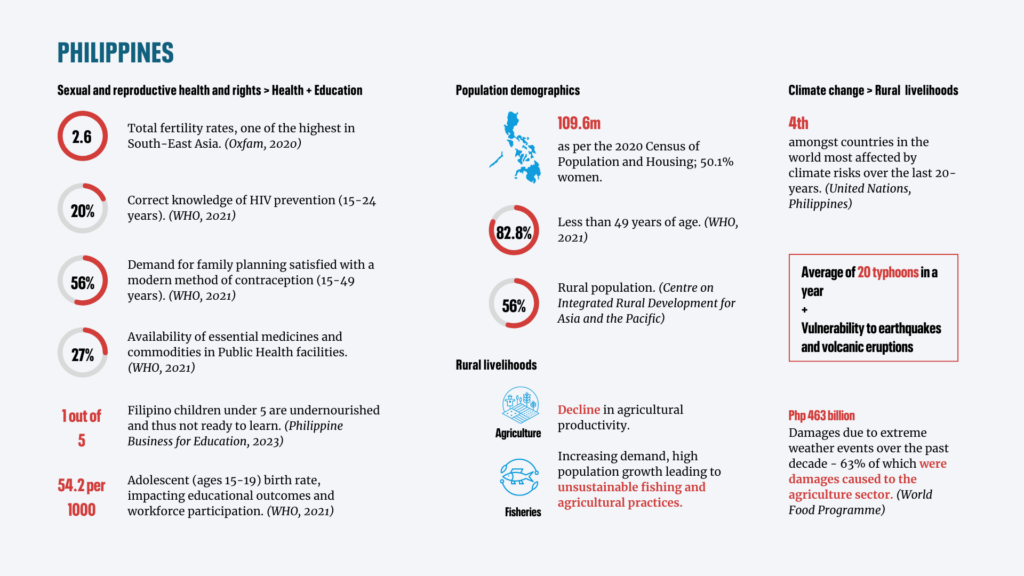
PFPI’s solutions recognise the intricate web of challenges we face. Their holistic approach underscores the importance of nurturing partnerships, leveraging expertise, and empowering communities to achieve impactful and sustainable outcomes. Such initiatives play a pivotal role in navigating the adverse impacts of climate shocks and addressing systemic challenges within the public health system – leading to a more equitable, healthy, and resilient society.

